Abstract
The relationship of root-applied 4-amino-3,5,6-trichloropicolinic acid (picloram) to ethylene production and the leaf movement response in honey mesquite (Prosopis juliflora [Swartz] DC. var. glandulosa [Torr.] Cockerell) and huisache (Acacia farnesiana [L.] Willd.) was studied in detail. The threshold and saturation levels of exogenous ethylene and root-applied picloram necessary to inhibit leaf movement were determined. Internal levels of ethylene in excess of those necessary to saturate the leaf movement inhibition response occurred in tops of treated plants before and after symptom expression. These internal levels of ethylene, while averages for the entire plant tops, probably occur at the specific site of action and thus account for the action of picloram in inhibition of leaf movement and related responses. Quantitative differences in the leaf movement response of both species to picloram and ethylene were observed. In huisache alone, a very small change in ethylene levels was necessary to produce a major blockage of the leaf movement response, suggesting that the gas may have a natural function in that species.
Full text
PDF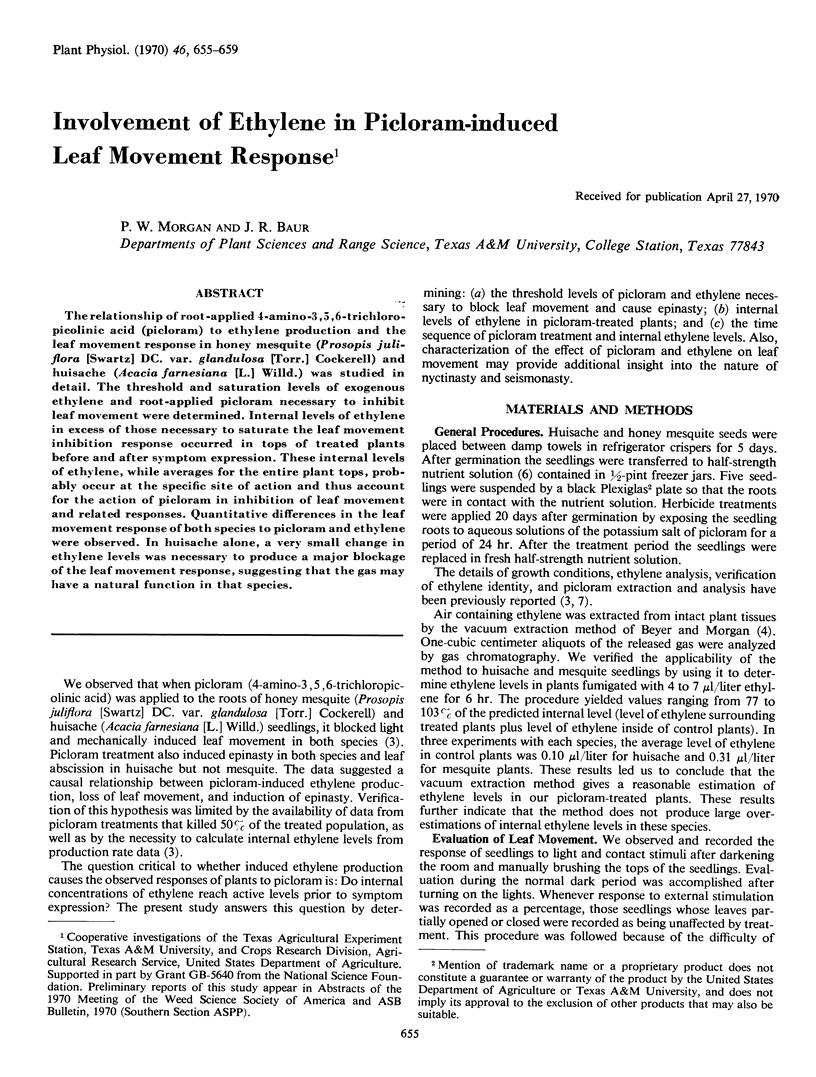
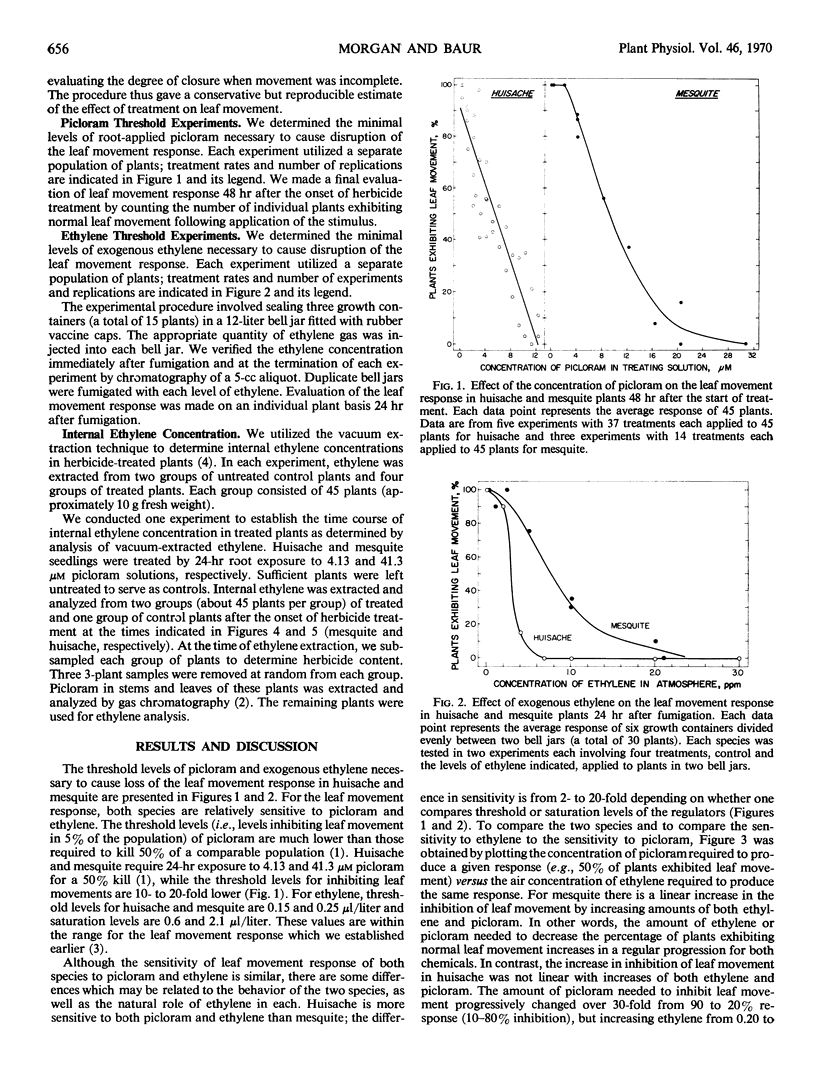
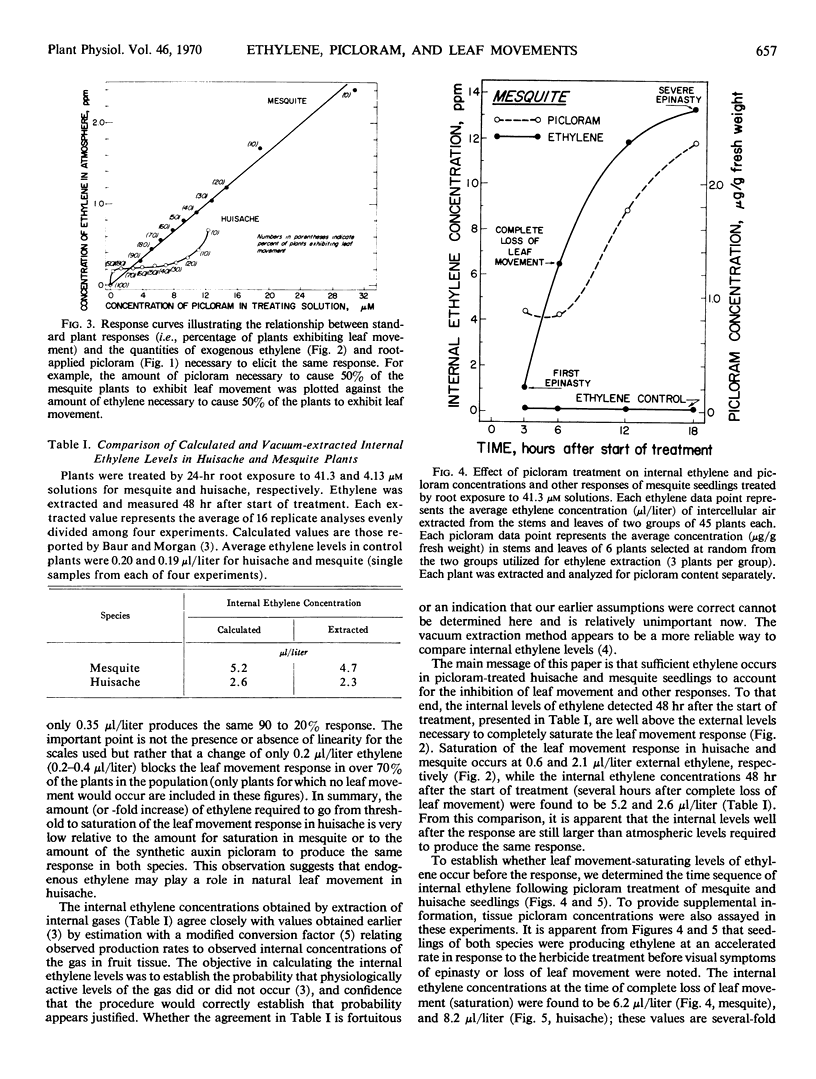
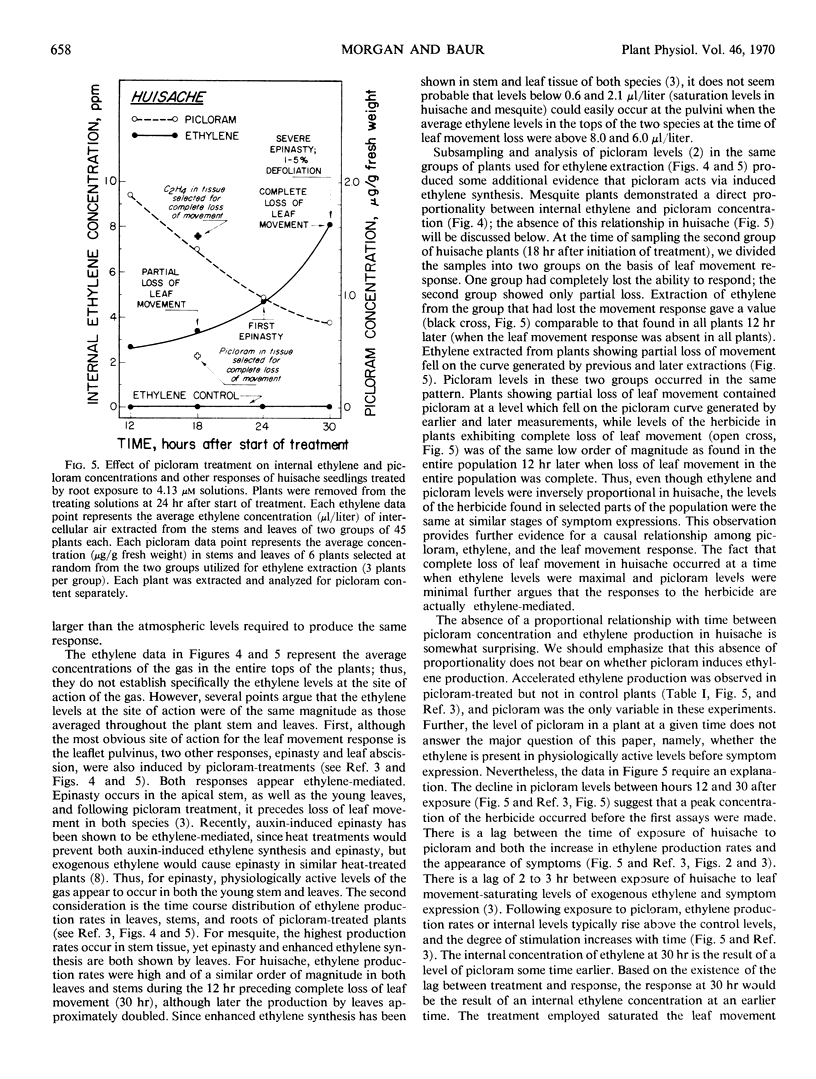
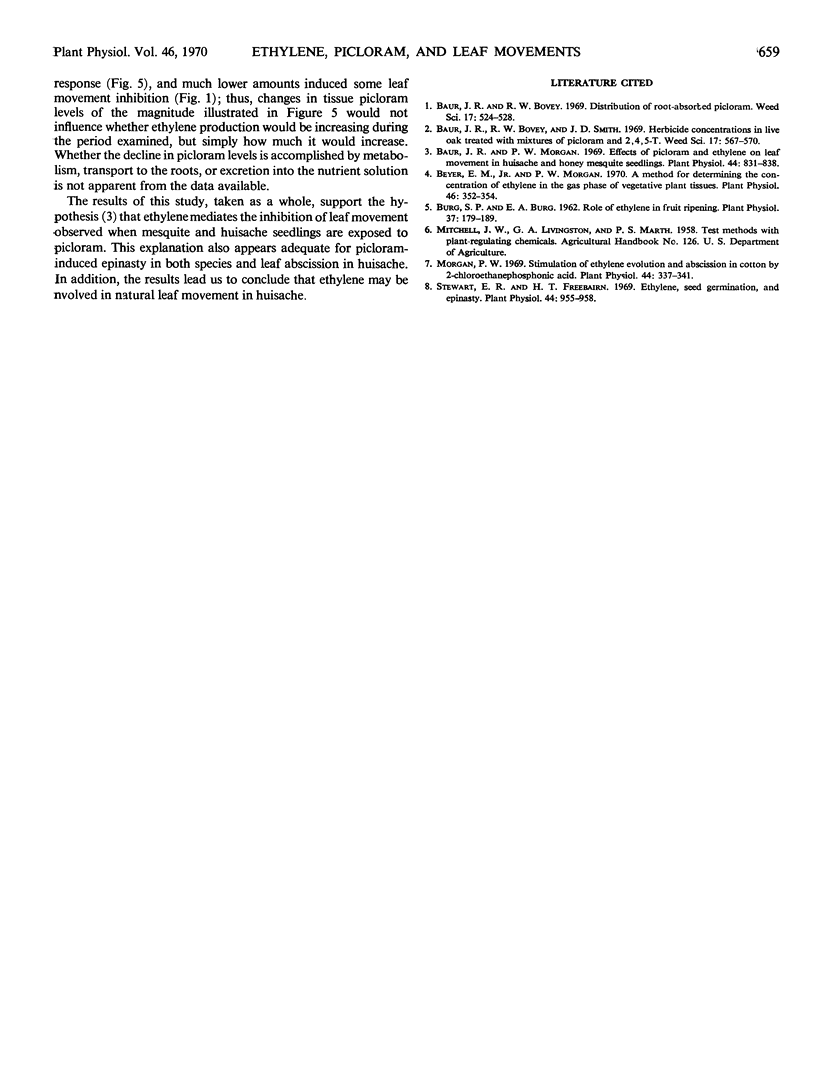
Selected References
These references are in PubMed. This may not be the complete list of references from this article.
- Baur J. R., Morgan P. W. Effects of picloram and ethylene on leaf movement in huisache and mesquite seedlings. Plant Physiol. 1969 Jun;44(6):831–838. doi: 10.1104/pp.44.6.831. [DOI] [PMC free article] [PubMed] [Google Scholar]
- Beyer E. M., Morgan P. W. A method for determining the concentration of ethylene in the gas phase of vegetative plant tissues. Plant Physiol. 1970 Aug;46(2):352–354. doi: 10.1104/pp.46.2.352. [DOI] [PMC free article] [PubMed] [Google Scholar]
- Burg S. P., Burg E. A. Role of Ethylene in Fruit Ripening. Plant Physiol. 1962 Mar;37(2):179–189. doi: 10.1104/pp.37.2.179. [DOI] [PMC free article] [PubMed] [Google Scholar]
- Morgan P. W. Stimulation of ethylene evolution and abscission in cotton by 2-chloroethanephosphonic Acid. Plant Physiol. 1969 Mar;44(3):337–341. doi: 10.1104/pp.44.3.337. [DOI] [PMC free article] [PubMed] [Google Scholar]
- Stewart E. R., Freebairn H. T. Ethylene, seed germination, and epinasty. Plant Physiol. 1969 Jul;44(7):955–958. doi: 10.1104/pp.44.7.955. [DOI] [PMC free article] [PubMed] [Google Scholar]


